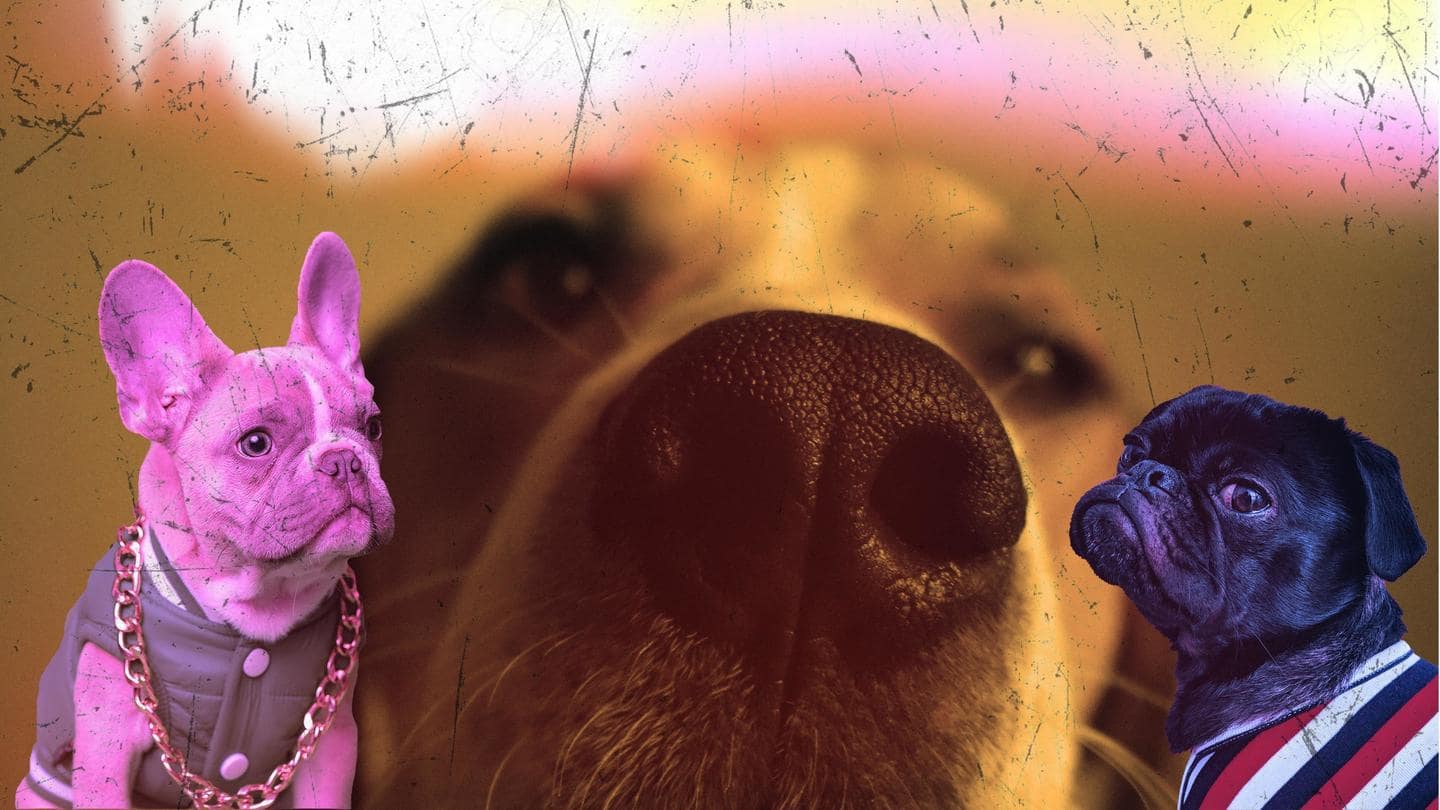
Dogs might be able to 'see' with their snouts: Study
What's the story
Dogs possess the exceptional ability to smell and track objects, besides displaying intelligence and laudable memory skills. A study published in the Journal of Neuroscience earlier this month revealed that dogs are able to use their noses to not only smell but also "see." Vision and sense of smell are connected in their brains, unlike any other animal.
Connections
Research suggests connections from dog's nose up to occipital lobe
Veterinary neurologist Philippa Johnson, senior author of the study told NBC News, "The most interesting thing about this research are the connections from the nose up to the occipital lobe, which houses the visual cortex." Since humans are vision-depended, our olfactory bulb and occipital lobe are not connected, but other animals that depend heavily on scent may have similar connections, expressed Johnson.
MRI scans
Johnson examined the MRI brain scans of 23 dogs
Johnson along with her colleagues examined the MRI brain scans of 23 dogs, and a different pathway was found in the minds of dogs. They discovered neurological connections between the occipital lobe, where vision is processed, and the olfactory bulb, which deals with smell. However, the research cannot identify how dogs are able to experience both the senses functioning together.
Vision
In dogs, olfaction is integrated with vision: Researcher
"It makes a tonne of sense in dogs. When we walk into a room, we primarily use our vision to establish where the door is, who's in the room, and where the table is," Johnson said. "Whereas in dogs, this study shows that olfaction is integrated with vision in terms of how they learn about their environment and orient themselves in it," she added.
Environment
Blind dogs navigate their surroundings better than visually-challenged humans
The study explains that even when dogs lose their vision, they can still play fetch and navigate their surroundings better than humans with the same condition. "The sense of smell in dogs is known to be much more sensitive than in humans: the olfactory bulb in a dog's brain is about 30 times larger than in a human brain," the researcher noted.
Quote
Their olfactory sense map onto their memories of spatial relationships
James Serpell, former professor of ethics and animal welfare, said, "This would...explain why dogs that go blind seem to function so well, at least when they're in a familiar environment where their olfactory sense can map onto their visual memories of spatial relationships."
Hunting
Hunters with dogs perform better: Paleoanthropologist
Paleoanthropologist Pat Shipman said that humans domesticated a predator because they got something out of it that they didn't have otherwise. Dogs were especially useful to early humans who relied on hunting. "It's been shown in several different ethnographic studies in several parts of the world that hunters who take a dog with them do better than hunters without a dog," she said.
Information
Superior power of dogs were the reason for their domestication
Shipman suspects that the unique ability of dogs to detect and analyze scents, to see in the dark, run faster than humans, and cooperatively hunt were the reasons for their domestication 4,000 years ago.